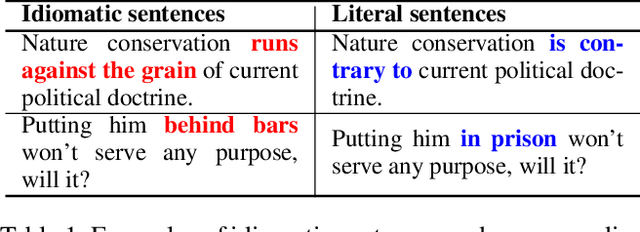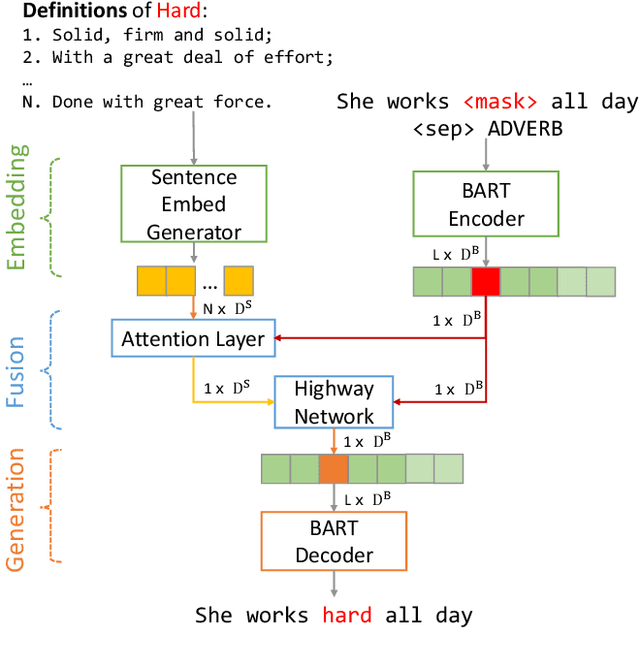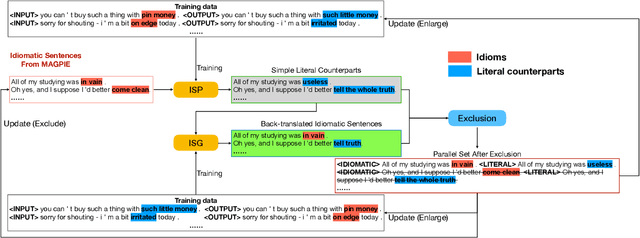Idiomatic Expression Paraphrasing without Strong Supervision
Paper and Code
Dec 16, 2021



Idiomatic expressions (IEs) play an essential role in natural language. In this paper, we study the task of idiomatic sentence paraphrasing (ISP), which aims to paraphrase a sentence with an IE by replacing the IE with its literal paraphrase. The lack of large-scale corpora with idiomatic-literal parallel sentences is a primary challenge for this task, for which we consider two separate solutions. First, we propose an unsupervised approach to ISP, which leverages an IE's contextual information and definition and does not require a parallel sentence training set. Second, we propose a weakly supervised approach using back-translation to jointly perform paraphrasing and generation of sentences with IEs to enlarge the small-scale parallel sentence training dataset. Other significant derivatives of the study include a model that replaces a literal phrase in a sentence with an IE to generate an idiomatic expression and a large scale parallel dataset with idiomatic/literal sentence pairs. The effectiveness of the proposed solutions compared to competitive baselines is seen in the relative gains of over 5.16 points in BLEU, over 8.75 points in METEOR, and over 19.57 points in SARI when the generated sentences are empirically validated on a parallel dataset using automatic and manual evaluations. We demonstrate the practical utility of ISP as a preprocessing step in En-De machine translation.
 Add to Chrome
Add to Chrome Add to Firefox
Add to Firefox Add to Edge
Add to Edge